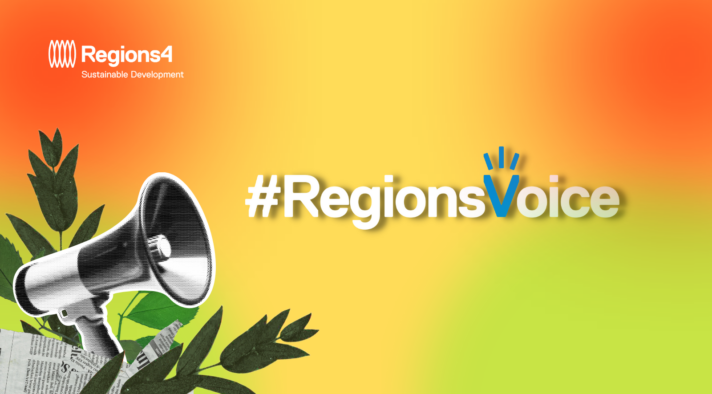LO-ACT is a project carried out by the Urban Institute of the University of Sheffield, the University of Utrecht and University College London funded by the European Research Council. It is focused on subnational climate action and led by Professor Vanesa Castán Broto. Regions4 was invited to participate in the research and data collection process and we had the opportunity to speak with Dr Linda Westman, to talk about what is LO-ACT and the importance of “ordinary” climate actions.
Regions4: Dr Westman and Dr Castán Broto, could you briefly explain what is the LO-ACT project about and what was the inspiration behind it?
Lo-ACT: The PI of the project (Vanesa Castán Broto) conceived the project to link two concerns that she had had for a long time. On the one hand, she was concerned about recognising both the potential and limitations for cities to act for climate action. While there is a lot of evidence about the willingness of many actors within cities to drive action forward, there is less evidence of translation of such willingness into actual, practical change. This required an investigation on how changes in the international climate regime drove the potential for action in cities and regions. On the other hand, she was concerned about the observation that a lot of action for climate change, even very effective action for both adaptation and mitigation takes place outside the usual channels of innovation. Many incremental innovations in waste management, balancing energy access and low carbon policy, or redesigning the built environment for sustainable uses take place in ‘ordinary’ contexts, and struggle to be featured as great examples of low carbon action. LO-ACT tries to fill this gap, both trying to reimagine international policies on urban climate action and examine the potential for action that is already visible in the ordinary contexts of living where it is most needed.
This also means that the project is an attempt to shift academic focus beyond arenas that have traditionally received a lot of attention in research on cities and climate change. While there are many studies of climate action in global cities (especially in the global North), we know little about ‘secondary’ cities outside of Europe and North America. At the same time, rapidly urbanizing areas in Sub-Saharan Africa and South Asia are the locations where most greenhouse emissions will be emitted in the coming decades.
Regions4: Lo-ACT premise is that “ordinary” climate actions carried out by regular citizens are the ones that will make a difference to fight the climate emergency in the long run. How do you think these everyday actions can be better incorporated into climate policies?
Lo-ACT: First, there is a need to recognise those actions’ impacts on urban environments. One challenge is that their contribution to reducing carbon emissions may be almost secondary, and too small, so they may not compute in large assessments of climate action. But, societal change- the kind of transition that is needed- is not something that we can measure very easily. For example, if a community in Mozambique finds a way to manage their waste more sustainably in a way that reduces their vulnerability to flooding without increasing carbon emissions, what that community is doing is building a sustainable city, which in the long term will help us to understand how to live with less carbon. However, if we measure the actual emissions saved today, the amount is completely negligible.
Second, these everyday actions are overlooked in much of the research on cities and climate change. In a recent systematic review of the literature, we found that socio-cultural change remains a marginalized topic in studies of cities and climate action. At the same time, this form of change will be central to the kind of transformative change that many researchers and policymakers agree is necessary to avoid dangerous and irreversible global climate change.
Regions4: How did you find out about the RegionsAdapt initiative and what caught your eye that made you include subnational governments actions in your research? How do you think initiatives like the RegionsAdapt can help enhance everyday climate actions?
Lo-ACT: In this project, we are interested not only in cities but also more broadly in how subnational actors are shaping international climate policy. After attending the most recent COP in Madrid and by carrying out interviews with individuals working on climate policy issues, it became clear that Regions4 is one of the major organizations representing regions in this policy context. It was important for us to connect with RegionsAdapt to understand how this initiative is leading and shaping debates on subnational climate governance.
The interview with Regions4 raised several important and thought-provoking questions. For example, why is there not a stronger focus on regional authorities in international climate policy conversations? Concerning adaptation, regional governments often play a very important role in formulating plans and strategies, as well as in mobilizing funding, which can support actions at lower levels of government (e.g. in cities). Especially in countries with strong provincial autonomy, this role is crucial. However, this level of action receives very little attention in both research and policy debates. I believe that one reason may be the historical attention on cities in international sustainability programs (such as Agenda21), as well as specific international institutions supporting urban sustainability action (such as UNHABITAT).
I think RegionsAdapt plays an essential role in drawing attention to the key function of regions in multilevel climate governance systems. Building this awareness over time can help raise the visibility of regional networks, build knowledge of specific challenges that regional authorities confront, and inspire conversations about what support mechanisms (e.g. funding) are required for effective interventions at this level.
Regions4: Why have you chosen to focus your research in small and medium cities of the global south?
Lo-ACT: The response to the first question partially answers this question. Because the majority of the urban population growth in the upcoming decades will take place in smaller places, so it is logical to expect that the majority of infrastructure needs will concentrate in these spaces. There is less attention to what kind of action can make a difference in these territories, particularly among the international academic community that tend to find easier access to do fieldwork in large and internationally connected cities. We wanted to examine the climate action landscape outside the beaten track, hence our focus.
Regions4: What is the expected outcome of the project and how do you hope it will influence the fight against climate change?
Lo-ACT: First, we hope to describe how to better intervene in rapidly growing urban territories, for sustainable just futures. We believe that this is done from a point of view that, first of all, understands how people see themselves, what kind of action can they take and what kinds of change is feasible. Sometimes this may involve urban planning measures. Other times it is communities themselves who find ways to provide collective services in a just, sustainable manner.
Second, we hope to influence international policy, to develop new ways of talking about climate action that enables local and subnational action to respond to the global challenge of climate change. We are already doing so, for example, through our work in the IPCC. However, we still struggle to think of the question of what we know about climate action, and how what we know is relevant to practitioners, policymakers, and people. Keep tuned in for more!
To learn more about the Lo-ACT project, visit: www.loactproject.com/
For further information and resources about subnational climate action, visit our Knowledge Hub.



